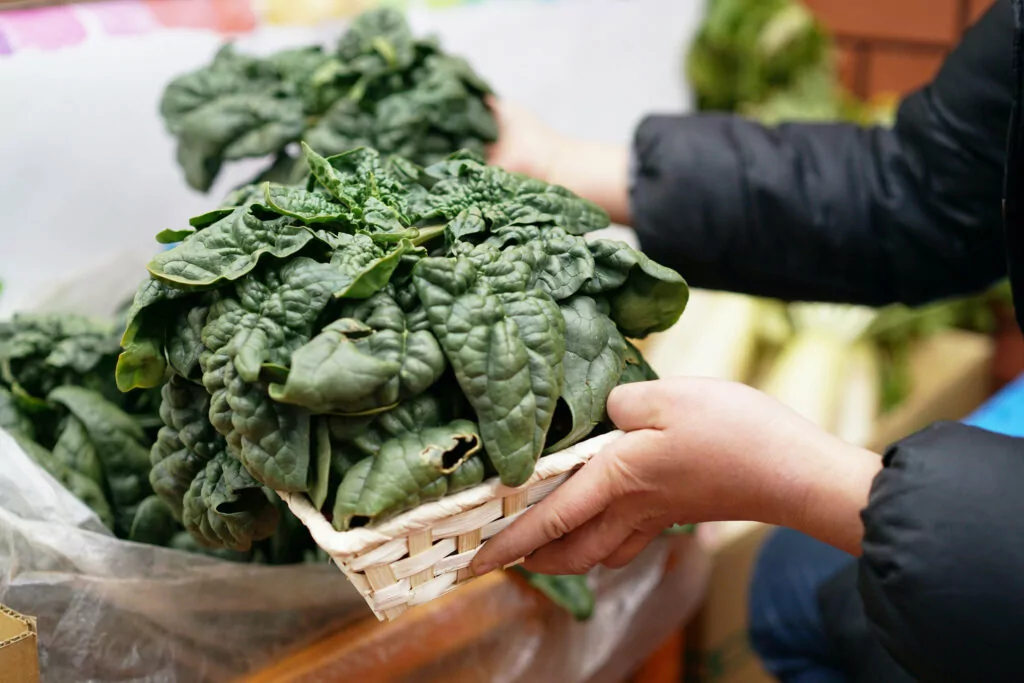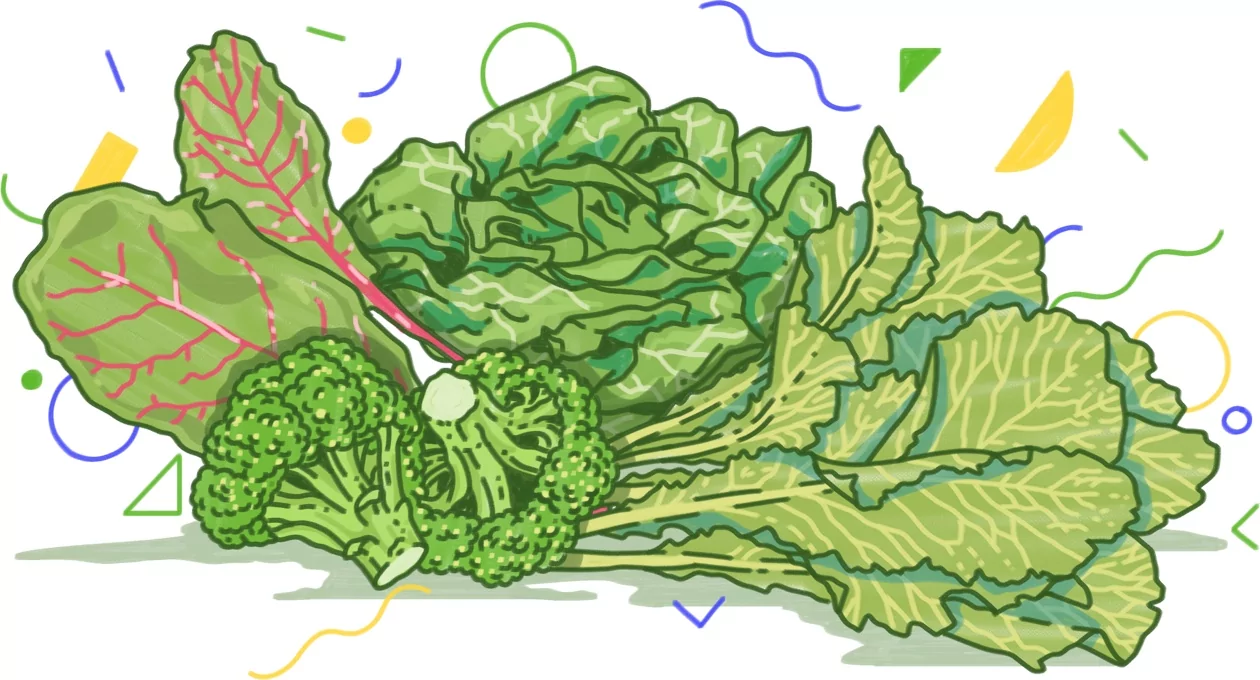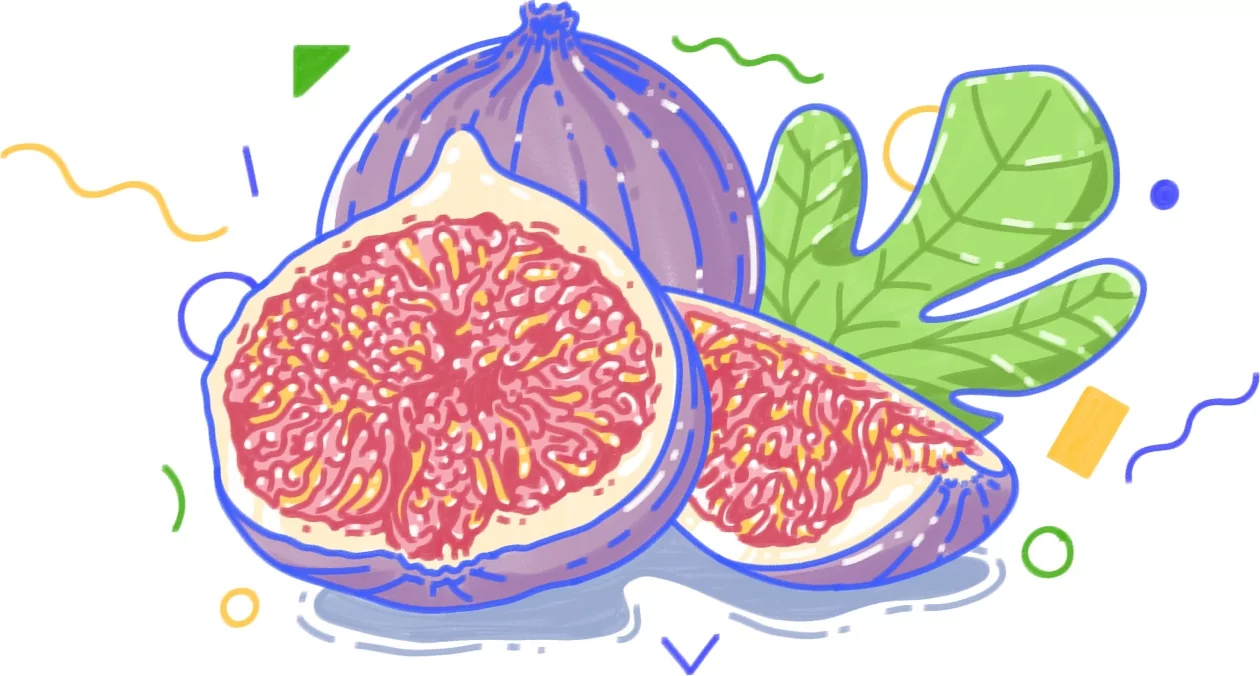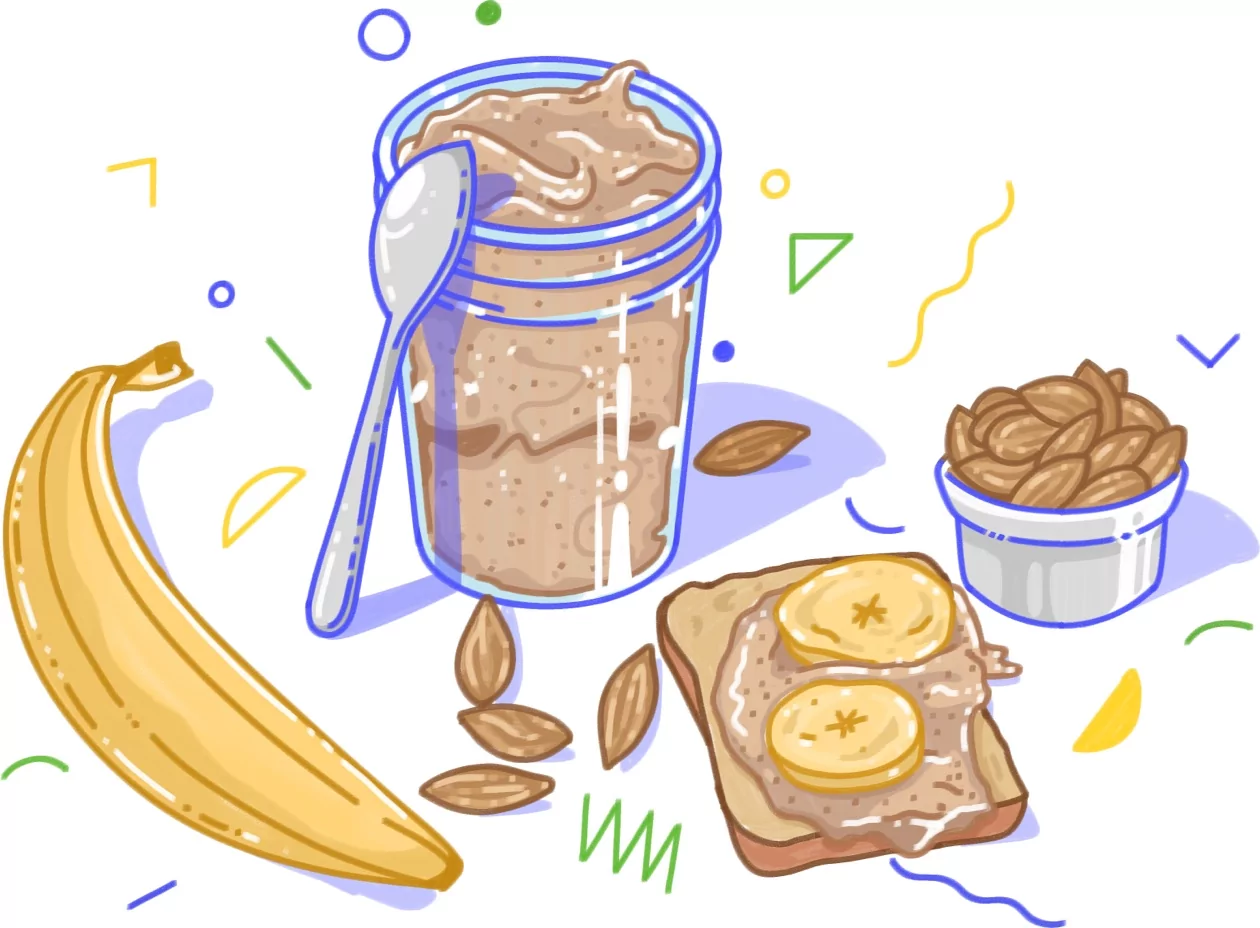A roundup of seasonal veggies & fruits that are scientifically proven to help grow/protect bone growth.
Bone density is an important facet of overall health, especially for kids with CPP. While CPP treatment should prevent growth plates from fusing together and impeding long-term growth, it’s a good idea to further protect your child’s bones with the nutrients in good-for-you fruits, veggies, and other whole foods. Consider incorporating some of these bone-fortifying foods into your kiddo’s diet.

Dark leafy greens
Chock-full of calcium and vitamin K, dark leafy greens like kale, collard greens, turnip greens, and bok choy build strong bones and help reduce a future risk of osteoporosis. If you have a picky eater on your hands, try kale chips or blend greens into a berry smoothie for a sneaky skeleton boost.

Citrus fruits
Grapefruits and oranges contain over 80 milligrams of vitamin C, which can help your kiddo absorb calcium, increase bone density, and build collagen — the basis of our bones. Mini clementines are a fun, portable snack for lunch boxes and scooping grapefruit segments out with a spoon is always a breakfast adventure!

Sweet potatoes
Calcium isn’t the only powerhouse nutrient when it comes to bone health: the magnesium and potassium in sweet potatoes can help maintain your child’s vitamin D levels and neutralize acidity to protect their skeletons. One medium sized sweet potato contains 31 grams of magnesium and 542 milligrams of potassium. Try oven-baked sweet potato fries for a healthy treat!

Figs
Whether fresh or dry, figs are loaded with calcium: around 90 milligrams in five fresh figs, and 120 milligrams per half cup of dried figs. Try adding chopped dried figs to your little one’s favorite trail mix for a skeleton-saving snack, or add sliced fresh figs to peanut butter toast for a bone-boosting breakfast.

Almond butter
One serving of almond butter, made simply from ground almonds, contains a whopping 111 milligrams of calcium, plus 240 milligrams of bone-supporting potassium along with nutritious plant-based protein. Add it to smoothies, use it as a dip for cut fruit, or make a trusty AB&J (that’s almond butter and jelly!).

Molasses
This isn’t your average sweetener: unlike refined sugar, one tablespoon of molasses contains 41 milligrams of calcium! Use molasses in place of honey and maple syrup, to top oatmeal, yogurt, or pancakes. Or drizzle some into a smoothie with kale, a frozen banana, fresh orange juice, and almond butter for a super calcium-rich start to your child’s day!
TPI.2021.2728.v1 (v1.1)










